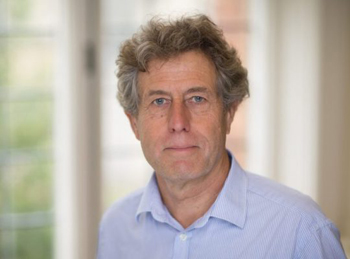
A 60% chance of rain: Weather, climate, and how to deal with uncertainty
Will climate change leave the region you live in hotter and drier, or wetter and stormier? It's a question of utmost importance in many areas of the world, yet it's one that climate scientists can't answer. This is why world-leading climate scientist Tim Palmer is calling for a high-performance supercomputing centre dedicated entirely to climate change.

Tim Palmer.
We were lucky enough to meet Palmer at a recent event organised by the Newton Gateway to Mathematics in Cambridge. In this podcast we talk to Palmer about this call for a "CERN for climate change" and why climate forecasting requires so much computing power in the first place. Palmer also tells us about a technique for dealing with uncertainty called ensemble forecasting, and what his work has taught him about uncertainty more generally, as it crops up in many areas of life and nature.
Tim Palmer's new book on the science of uncertainty, The primacy of doubt, is published by Oxford University Press. To learn more about climate models see this article. To learn about weather forecasting see this article and to read about ensemble forecasting, which Palmer pioneered, see this article. To read about uncertainty more general click here.
This podcast was produced as part of our collaboration with the Isaac Newton Institute for Mathematical Sciences (INI) – you can find all the content from our collaboration here. The INI is an international research centre and our neighbour here on the University of Cambridge's maths campus. It attracts leading mathematical scientists from all over the world, and is open to all. Visit www.newton.ac.uk to find out more.
